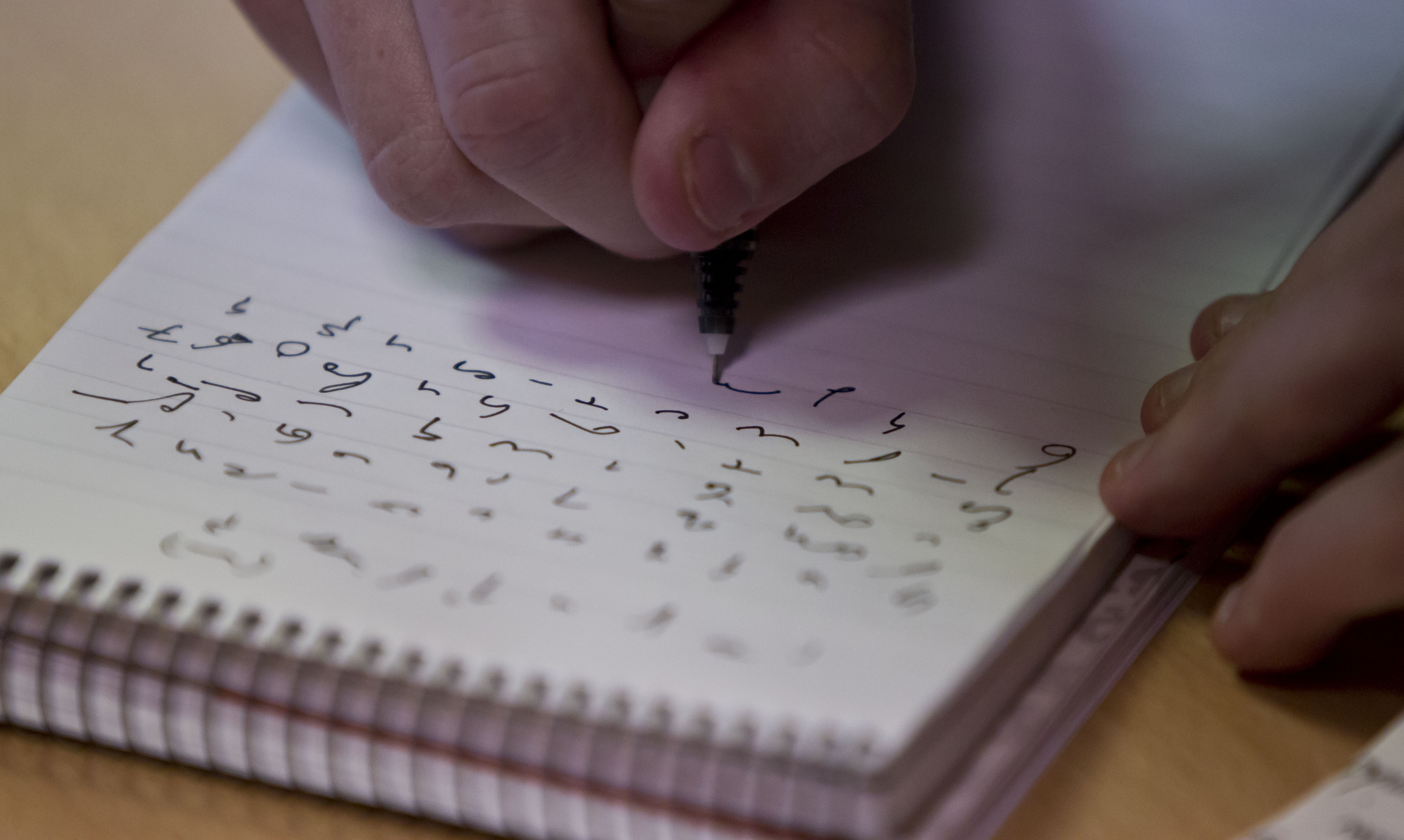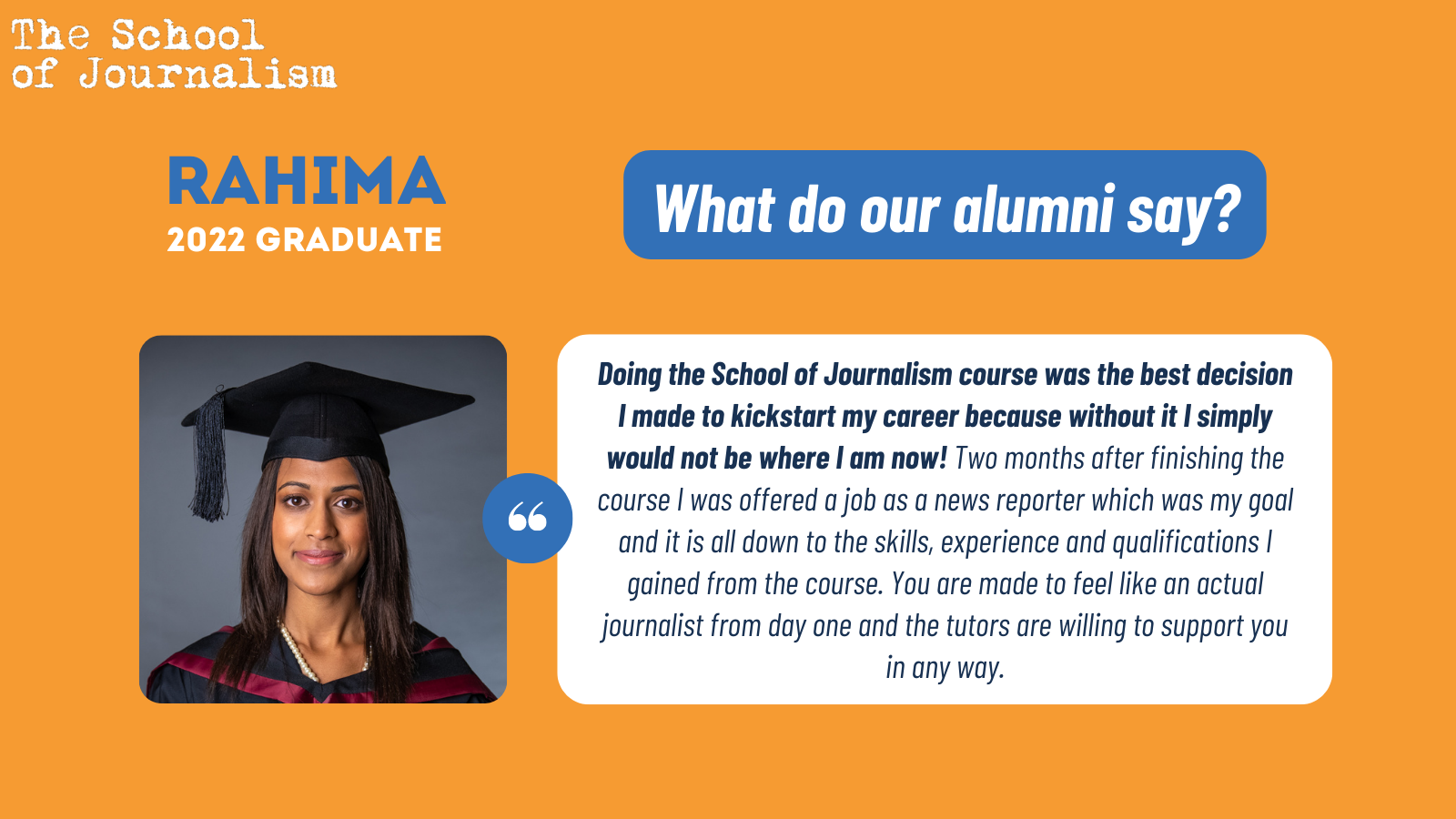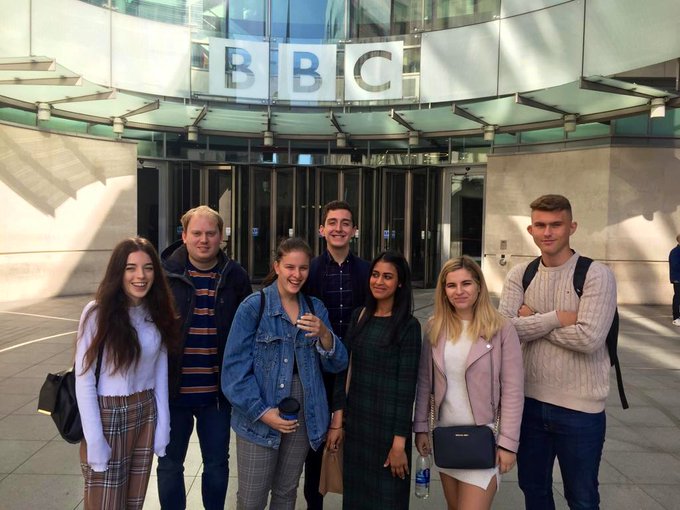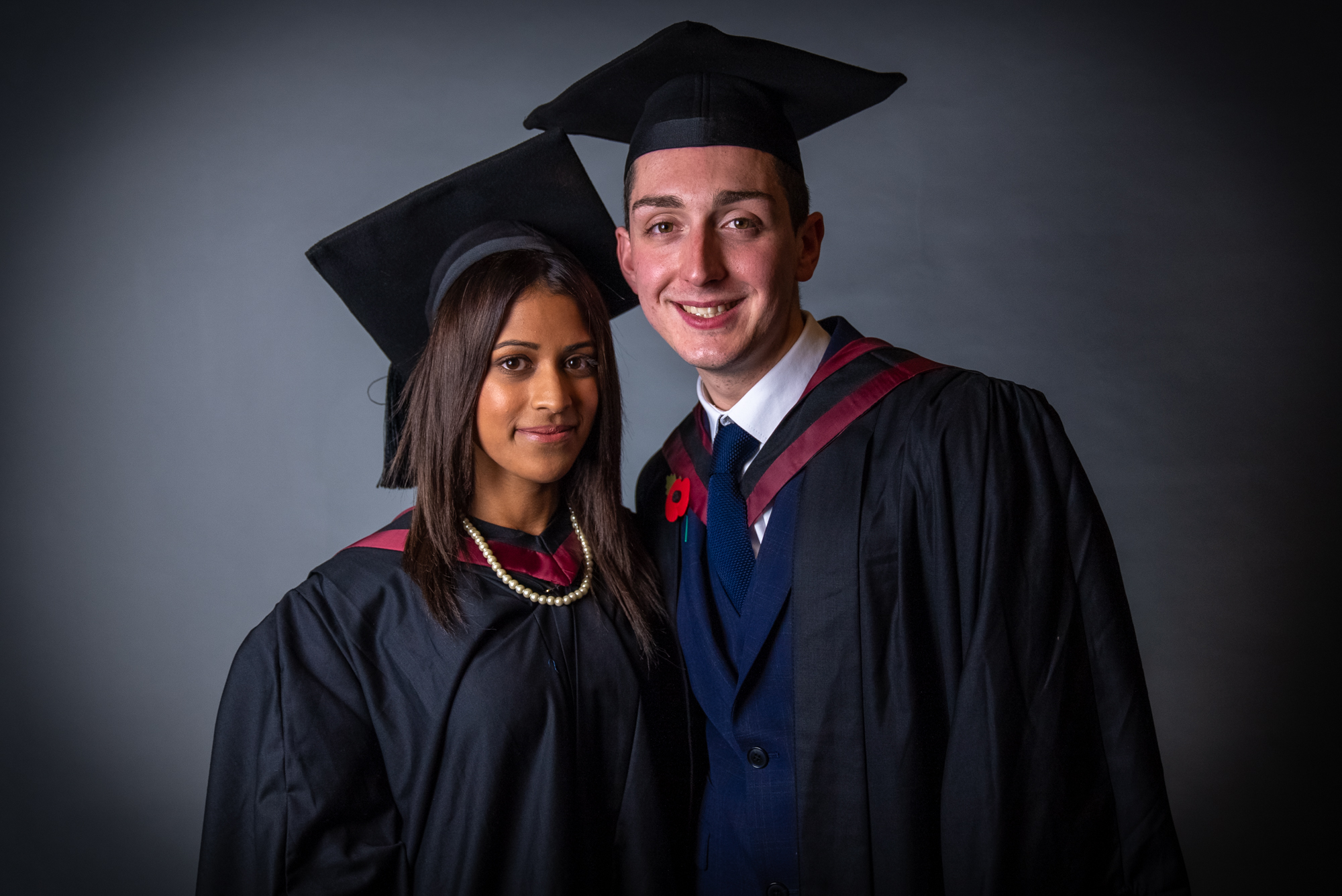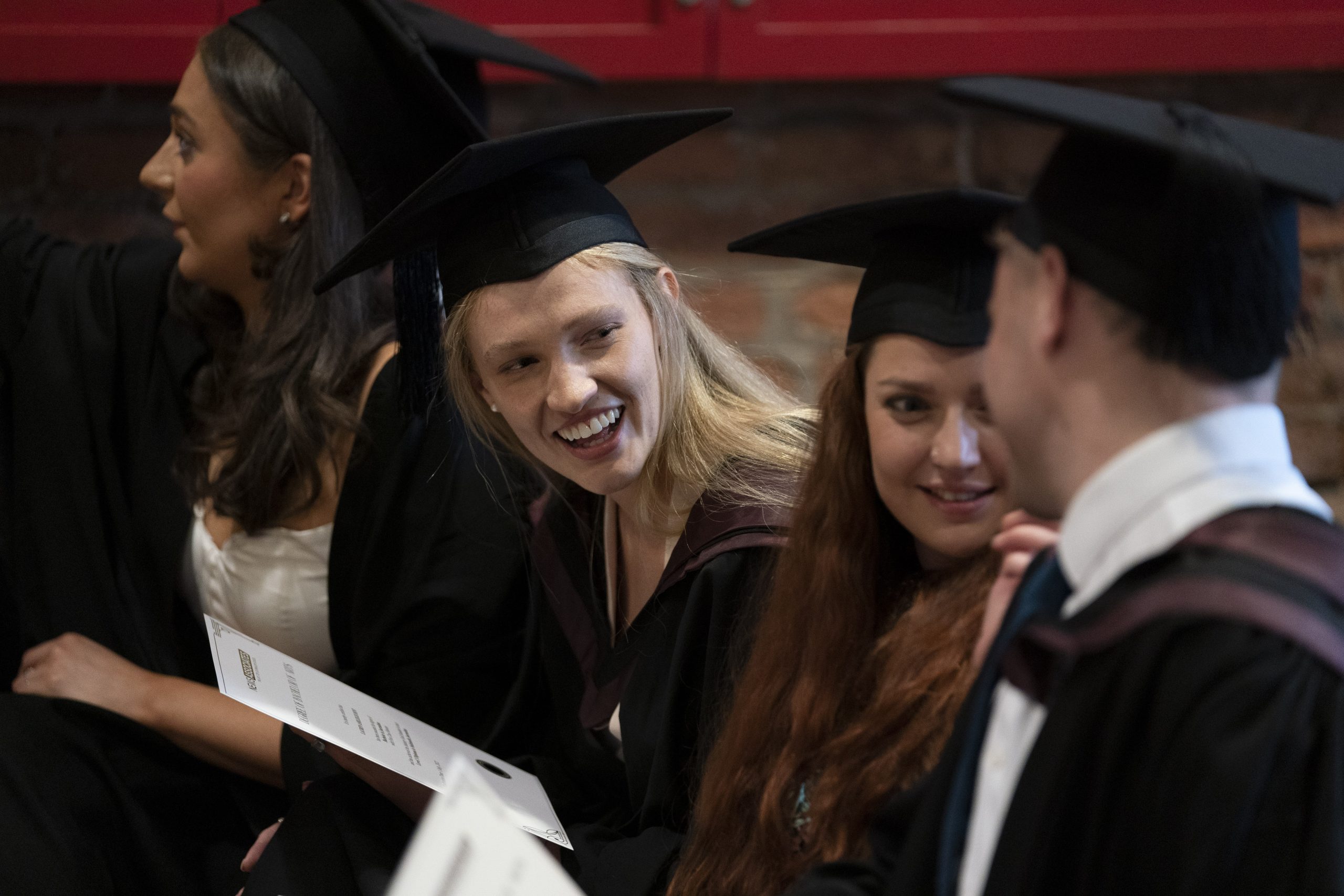How to Apply
Step-by-step guides
To apply for to join The School of Journalism in 2025 or 2026, you can apply via UCAS.
First you’ll need to register for your account on the UCAS website, where it will ask you to fill out some personal details.
You’ll then need to sign in and complete the rest of your details, including questions about funding, sponsorship options, and if you have any special needs or disabilities.
At this point UCAS will ask you a few more questions, such as any taster courses you’ve attended as well as some questions for their statistics. If you haven’t been to a taster course then we run regular free journalism masterclasses in our centres, so why not come along to one of them.
Depending on your personal details, you might then be directed to student finance questions. UCAS don’t arrange student finance, but if you need financial support you can give them permission to share your details with the student loans/awards organisation which should speed up the process of getting a loan. Alternatively, take a look at our undergraduate fees and funding page or give us a call.
You then need to choose your courses – use the details below to apply for The School of Journalism.
Course name: BA (Hons) Multimedia Journalism
Course code: MUJO
Institution: Plymouth Marjon University
Institution code: P63
Campus: London (L)
You can apply to join us in 2025 or apply for deferred entry if you’re looking to study with us in 2026.
What needs to be sent by the UCAS deadline?
- Your details, qualifications and course choices.
- A personal statement demonstrating your interests and experience.
- Your reference and application fee.
If you’re applying through your school/college, please check their deadline, and follow this to get your application in on time.
EDUCATION HISTORY
Once you’ve selected our course, you need to enter your full education history. This means all of your qualifications, whether you have the result, you’re still waiting to sit the exam, or you’re just waiting for the result. For any pending qualifications, pop them on your application and then you can just send the result to us when you get it.
How to apply if you’re an international student: qualifications are listed by name and country, but if you don’t see yours you can add it to the ‘other’ box.
How to apply if you’re a mature student: you’ll need to find your school exam certificates – but you can contact your school or local authority if you need help.
EMPLOYMENT HISTORY
You can now enter any paid jobs you’ve had. It doesn’t matter whether it was a full or part-time role – you can include details for up to five. You’ll want to put the company name, their address, the start and end dates and a brief description of the job.
HINT: If you’ve done any voluntary work don’t put it here because you can include this in your UCAS personal statement.
PERSONAL STATEMENT
You then need to write a personal statement. This is your chance to tell us why you want to do the course and why you’ll be great! We’re looking for you to tell us about your passion for journalism, what media you like, are you good at English at college, have you done any work experience or written anything for your college magazine for example. Include any examples of volunteering, perhaps you can tell us about your commitment – have you played in a sports team, or played a musical instrument?
It might take a few attempts until you’re happy with it. Ask family and teachers to read over it, and make sure you check the spelling and grammar. You can give us a call and one of our team will be happy to provide some feedback before you submit it.
You can then make sure you update any changes and save your application. Once all sections are completed, you’ll have to read and agree to the declarations.
You then need a reference, which is a written recommendation by a teacher, an advisor or perhaps a professional who knows you academically.
You then need to pay the relevant fee and send the application over! The fee is £20 if you’re applying to just one course and £26 if you have multiple applications or are applying after the initial deadline.
If you’re filling in your UCAS application through your school or college it’s worth checking with them before you send it, as they might send your application for you.
Once your application is sent through to us at The School of Journalism, we’ll read over your personal statement and reference and then hopefully invite you in for an interview. You’ll get an email from UCAS alerting you that we want to interview you and then one of us will be in touch via email to organise a time.
When you come in for your interview we’ll want to talk through your personal statement and tell you about the practical nature of our course, and what you’ll be doing on a day to day basis. This is your chance to meet our award-winning team and come armed with all your questions.
After this, we’ll hopefully make you an offer via UCAS which you can then accept!
In the meantime if you have any more questions on how to apply then get in touch and we can talk you through everything. If you need more help with filling in your UCAS application or writing your UCAS personal statement, check out our blog section. Good luck!
Unsure about what studying journalism at university is like? Read our guide here.
The School of Journalism is unlike any other journalism degree. Find out why you should apply in 2025.

We make sure you get practical experience the whole way through your degree ✨
Read how @lily_jobson spent her summer bursary ⬇️ #StartedHerehttps://t.co/SDpn15XTMT
— School of Journalism (@TheJournoSchool) July 6, 2023
